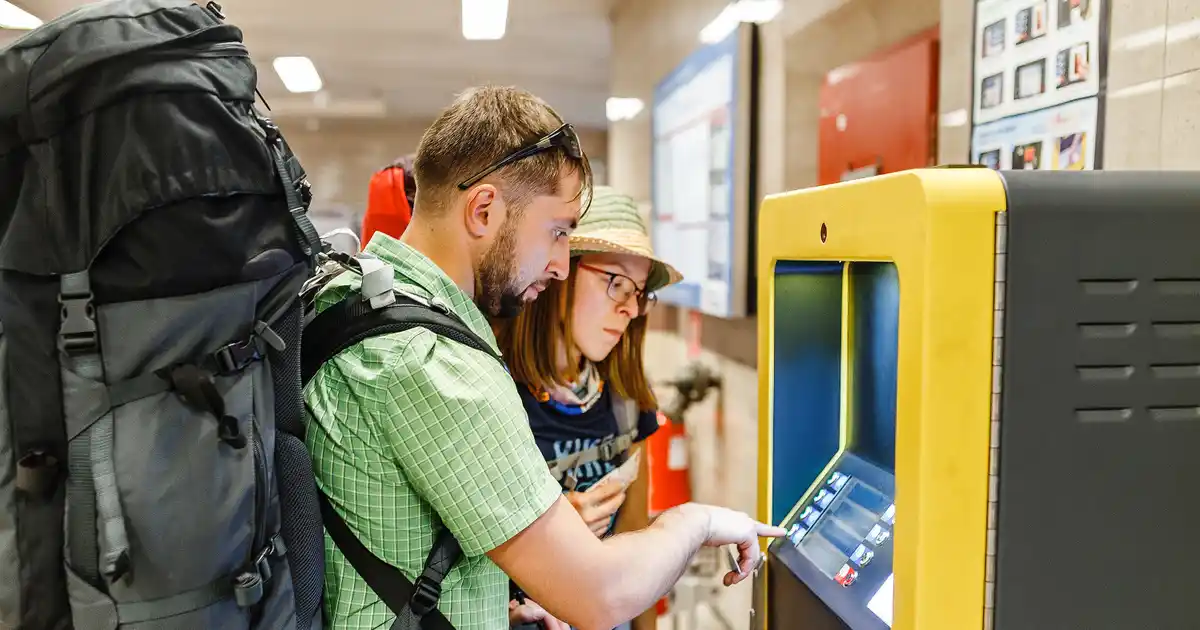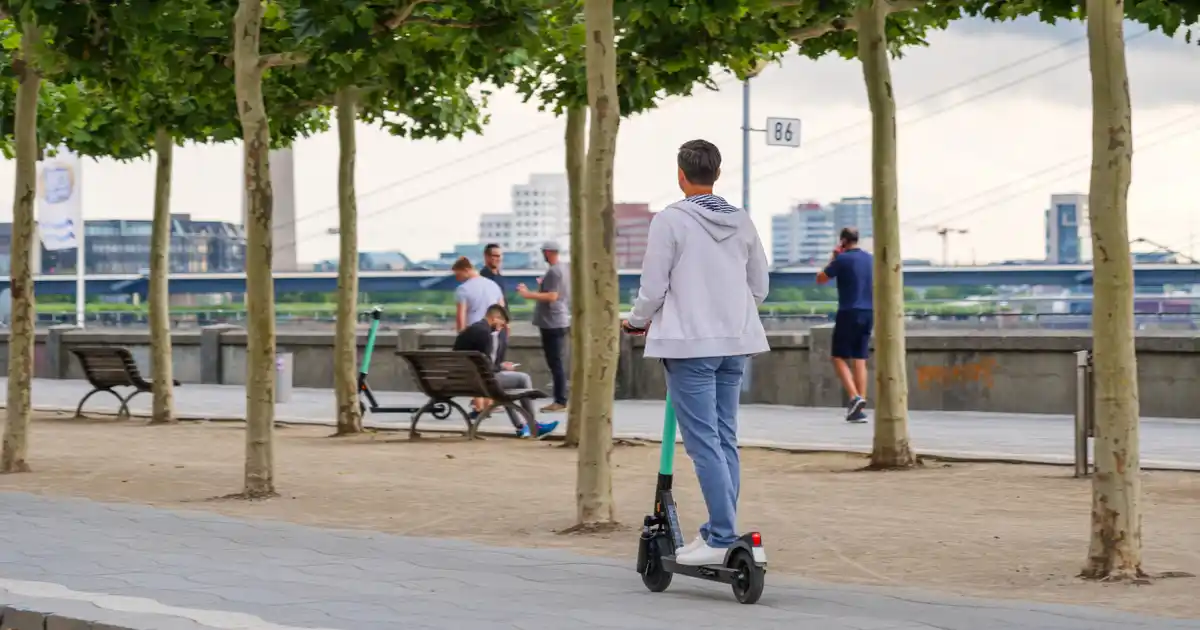Between flights, accommodation and food, travel costs can add up quickly, but your budget is the last thing you want to think about when you’re on vacation and exploring new destinations.
Organizing and strategizing your budget before you travel can help you to get the most from your experience. From finding cheap flights to earning travel points, there are many ways to save money while traveling the globe. Check out the tips below.
Eat Local Cuisine
Many travelers explore the world in pursuit of new cuisines. You can eat cheaply while traveling without missing out on amazing food, whether it’s a flaky croissant in Paris or a rich and spicy daal in India.
The easiest strategy for delicious and cost-effective dining is to venture away from tourist zones and toward where locals eat. These spots typically offer less touristy atmospheres, and their menu items are priced for non-tourists.
To find the best dining spots, ask locals for their opinions. Hotel staff, baristas, bartenders and restaurant workers tend to be great sources for dining tips since they’re well-acquainted with the area’s hospitality industry.
 Shutterstock
ShutterstockSave Dining Out for Special Occasions
Even if you can find cheap local places to dine, eating out for every meal can be hard on your travel budget. However, you can still experience local cuisine on a budget by finding ingredients unique to the area at local markets and grocery stores and by cooking at your accommodations.
Make an event out of visiting farmer’s markets and other local food vendors. Then take the ingredients home to try making special dishes yourself. If you don’t have access to a kitchen while traveling, pick up convenient snacks or dehydrated meals for cheap options when you’re not dining out.
 Shutterstock
ShutterstockTravel During Off-Season
Popular travel destinations become significantly more expensive during peak season, such as winter holidays, spring break and long weekends. Depending on the climate, various destinations have different peak seasons. During these times of year, airlines, hotels and activity vendors hike up their prices.
If you travel during the offseason instead, you can take advantage of discounted and competitive prices. Offseason months are also a bonus to travelers who prefer a quieter and more authentic travel experience since destinations won’t be packed with other tourists.
 Shutterstock
ShutterstockConsider Alternative Accommodation
Hotels sometimes offer luxurious experiences, but they aren’t always the best or most cost-effective option. Be open to other forms of accommodation, such as hostels, rental apartments, Airbnbs, house swaps and even couch-surfing. In addition to more affordable rates, alternative travel accommodations also provide memorable experiences and the chance to make connections with other travelers. Many people become new friends in common areas of hostels and end up traveling together.
To find the best deals before booking, compare the rates of your accommodations across multiple booking platforms. If you’re traveling for an extended period, consider booking a long-term rental, as many accommodations offer discounts to travelers staying for multiple weeks or months.
 Shutterstock
ShutterstockGet the Most From Your Home Currency
You’ll get more out of your travel budget if you travel to destinations where your home currency is more valuable. The U.S. dollar and other currencies carry significantly more value in destinations such as Argentina, Hungary and South Korea, which means you can find accommodations, food and other travel needs for a fraction of the cost of more expensive countries.
Having a strong home currency also allows you to access more travel luxuries. You can affordably dine at high-end restaurants, book tours and even hire a tour guide.
 Shutterstock
ShutterstockMinimize Souvenir Purchases
It’s tempting to buy souvenirs as a way to remember your trip, but avoiding shopping for overpriced tourist trinkets can save you money as well as luggage space and weight.
Instead of spending your money on souvenirs, invest in a camera or phone with a high quality camera to take photos to remember your travels with. Unlike souvenirs, digital photos won’t deteriorate or break over time. If you want to bring something home for friends or family, consider printing photos or making them into postcards.
 Shutterstock
ShutterstockUse a Travel-Friendly Bank Account
You can save money when traveling by setting up a travel-friendly bank account. These bank accounts provide cheaper international bank ATM fees so you can easily take out cash almost anywhere in the world, and some award refunds for any fees charged by the machine’s owner.
Most basic accounts charge fees for international purchases, which can quickly add up over a few days of travel. Travel-friendly accounts don’t charge for international purchases and generally provide low wire-transfer fees and competitive currency exchange rates.
 Shutterstock
ShutterstockBrowse for Cheap Flights
Booking websites use cookies to track and increase the price of repeatedly searched flights, so browsing in incognito mode can help you find the lowest prices.
Prices can fluctuate depending on the day you book as well as the day you travel. For example, you can find cheaper flights if you’re searching on a weekend rather than a weekday, and weekday departures are generally cheaper than weekends.
Flight search engines compile flights from various airlines to help you find the best deal. Check out websites such as:
- Skyscanner
- Flighthub
- Momondo
- Google Flights
Keep an eye out for deals, and be flexible about your travel plans. Traveling according to the best deals can sometimes bring you to destinations you’d never considered.
 Shutterstock
ShutterstockTake a Working Holiday
A working holiday is an extended trip where you can earn money through short-term employment. Although working doesn’t necessarily reduce your traveling costs, it can help you to maintain a positive bottom line.
Many travelers work at hostels, bars or as fitness and sport instructors. Depending on the circumstances, some of these jobs may provide discounted accommodation or other perks as part of your compensation package. These jobs can also connect you to locals and other travelers, providing you with a more immersive and authentic travel experience.
 Shutterstock
ShutterstockSign Up for Travel Rewards
Signing up for travel rewards programs can reduce costs for flights, accommodations and activities. Many credit cards offer travel rewards with sign-up bonuses. Frequent travelers can often cover the cost of a whole trip with the millions of travel points they accumulate. Some programs offer additional perks such as travel and rental car insurance.
Airline credit cards provide a few other bonuses, such as deals on lounges and restaurants as well as waived checked bag fees.
 Shutterstock
ShutterstockSave on Transportation
Transportation costs don’t stop at your flights. Once you arrive at your destination, you’ll need to figure out a cost-effective way to explore the area. Renting a vehicle or taking cabs is convenient but quickly becomes costly.
Try to book your accommodations in a central location so you’re able to walk most places. Public transit such as buses, trains or subways are another cost-effective option, but you’ll need a working grasp of the local geography and language to navigate to your destination.
Instead of renting a car, research local rental options for scooters and bicycles. Many major cities have ride share and bike share programs that make local travel convenient and affordable.
 Shutterstock
ShutterstockLook For Cost-Effective Entertainment
If you know where to look, cheap or free entertainment and activities at your destination are easy to find. Airbnb hosts, hotels and other hospitality workers can offer insight to fun events that you might not find online. Rather than searching for tourist attractions online, look for small local events such as live music, social activities and gallery shows.
Museums are a great way to learn about an area’s culture and history, and they often have discounted or free weekday tickets available to drive traffic. Don’t forget to visit public gardens or parks for free exploring.
 Shutterstock
Shutterstock